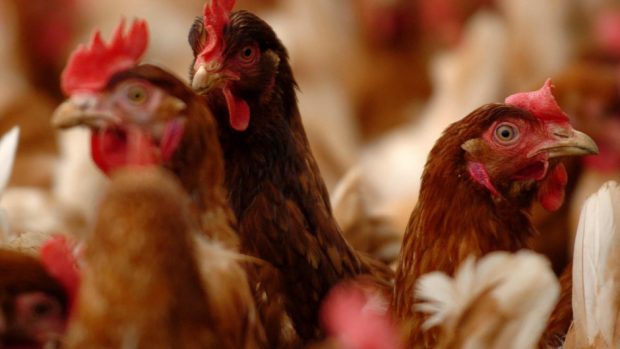Scottish Government has issued a reminder to poultry farmers and bird keepers that the avian influenza prevention zone will remain in place until at least April 30.
Current rules dictate that all birds must be kept inside until February 28, after which birds will be allowed outside provided bird keepers adopt specific biosecurity measures.
The measures, which are required until at least the end of April, include: making sure that birds’ feed and water can’t be accessed by wild birds; avoiding transfer of contamination between premises by cleansing and disinfecting equipment, vehicles and footwear; and reducing the movement of people, vehicles or equipment to and from areas where poultry or captive birds are kept.
Restrictions were placed on farmers and bird keepers in December last year following outbreaks of the highly pathogenic H5N8 strain of avian influenza in parts of the UK. One case of the low pathogenic H5N1 strain was found in Dunfermline last month.
Free-range poultry producers were at risk of losing their free-range status if the requirement for housing birds was in place beyond February 28, as EU rules stipulate birds kept inside for longer than 12 weeks cannot be marketed as free-range.
Rural Economy Secretary, Fergus Ewing, said: “The risk from highly pathogenic avian influenza H5N8 remains, with another confirmed case in domestic birds in England as recently as last week.
“We have listened carefully to key industry stakeholders and are clear that allowing birds outside on February 28, under enhanced biosecurity, provides the right balance between reducing disease risk and minimising the economic impact on Scotland’s vital free range poultry industry.”
Scotland’s chief veterinary officer, Sheila Voas, said she was writing to all Scottish bird keepers registered on the GB Poultry Keeper database to make them aware of the new rules.
She said: “Bird keepers will still have the option to house their flock, and for many this will continue to be the most practical way to comply with the requirements of the zone and minimise the risk of infection. However, under EU law, products from housed birds can no longer be marketed as ‘free-range’ after February 28.”
